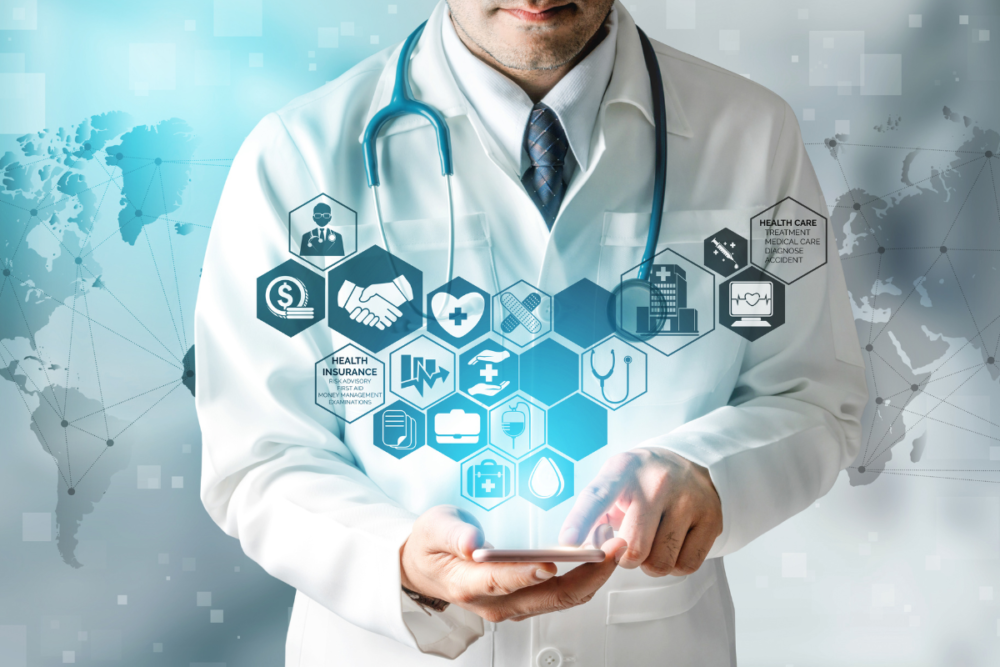Surprisingly, tech and healthcare go hand in hand. Two areas that might seem worlds apart are closely intertwined, with one helping to change the other tremendously. The impact that technology has had on healthcare is nothing short of extraordinary.
Of course, the history of healthcare in the US has evolved and made historic leaps forward. Part of the reason for these significant advancements has been thanks to technology. Technology in healthcare has made some noticeable changes throughout the years. Keep reading to find out how technological advances have helped revolutionize the medical industry over the years.
Early Detections
One thing many medical professionals will tell you, the sooner something is spotted, the better. It enables a person to seek the treatment they need as quickly as possible. Seeking treatment sooner helps to increase the chances of success. For instance, if signs of cancer were to be detected in its earliest stages, an individual could be put on the best course of treatment. This can lead to a positive outcome in most cases.
Thanks to technology, the early detection of illnesses have progressed tremendously. The equipment used and tests performed can help to provide medical professionals with detailed insight into small signs of an illness developing. Once spotted, they can refer the individual to where they need to go to beat the issues as soon as possible.
Advancements In Treatments
On the topic of treatments, it is not just early detection that has had a positive impact, thanks to technology. Medical treatments have continued to improve, with new techniques being introduced to help a person restore back to their best health. Many of these treatments have progressed tremendously throughout the years. Some can precisely target the issue, with great chances of success. Of course, there are cases when this is not possible. However, these are often few and far between.
The medical industry has used technology to develop medication and machines. Some of these developments have been revolutionary, helping to tackle issues many deemed were not possible to help. As technology continues to advance, so do these treatments.
Less Invasive Procedures
Fortunately for those going through treatments, an advantage technology has provided is less invasive procedures. Many surgeries performed decades ago were invasive, causing an individual to experience longer recovery times. Now, a common type of surgery performed is keyhole surgery. Medically referred to as Laparoscopy, keyhole surgery does not require a surgeon to make large incisions in an individual’s skin. Instead, the minor incisions keyhole performs are far less invasive.
There are other treatments and procedures performed that are also less invasive. From CT scans to MRIs, x-rays and ECG scans, these procedures are not invasive and can deliver clear and accurate results. These results can be used to help identify any issues and potential concerns, directing to the best course of treatment.
Clearer Imaging
As mentioned, CT scans, MRIs, x-rays and ECG scans can provide clear results. This is because the imaging software used can provide a medical professional with an in-depth picture of a person’s brain, bones or whichever organ they want to learn more about. These pictures have helped to identify potential concerns and provide answers to queries a person has about their health.
These clear images delivered have been down to the advancements in technology. As technology advances, so too do the images. The clarity and detail these scans produce will be greatly beneficial in helping countless individuals to get the diagnosis they need. It could help to make a tremendous difference in the outcome.
Support In Construction
Of course, not all of the advantages technology has had has been to do with medical improvements. Some have been due to the construction of healthcare practices and clinics. The process behind the construction of these buildings has experienced an improvement in development due to technology. Designs and images of the outcome have been improved with the power of new design software and tools. Communication between parties has strengthened, and accessibility of materials and resources is far easier than before.
In addition, the organization of construction projects has improved thanks to platforms like Kahua, a project management software within the healthcare industry. Tools like these can improve the efficiency of a construction project. It can help create a seamless process for everyone involved to achieve the same goal – the completion of the healthcare practice or clinic.
Innovative Of Health Trackers
Another way technology has helped revolutionize the medical industry is through health trackers. Those who suffer from heart problems or diabetes might wear trackers to help them, and medical professionals monitor their health. It can alert them to any issues that need to be addressed and monitor any developments that might occur due to a change in medication or following a treatment.
Those that own a smartphone will likely have seen the health tracking app already installed. These innovative apps can help to track how many steps a person takes, monitors their sleep (how long they slept, how well they rested, and so on), and even tracks their screen time. Individuals can contribute to these apps by adding what they eat throughout the day and their water intake. It helps to offer an insight into their health. From how many calories consumed to how many were burned, individuals use these tools to help them improve their health and fitness. Additionally, there are also watch health trackers and some that are built into smartwatches. These wearable devices can offer insight into the wearer’s heart rate and sleeping patterns.
Support To Healthcare Professionals
Those working in healthcare will likely have seen the changes and developments in the industry thanks to technology. Naturally, these developments will have impacted the way in which they work. Technology has helped to make accessing patient information more accessible than before. Personal medical history and information can be shared between the relevant parties with consent. This helps the individual to seek the right treatment or procedures, with reduced delays due to waiting for their medical history and files to be shared.
The advancements in technology and improvements made have helped to support healthcare professionals. They can conduct more thorough tests to get to the root of the issue. It has helped them to advance in discovering new treatments, improving medication and leading researchers to new discoveries. Technology has helped healthcare professionals uncover new ways to perform treatments. All of these have positively impacted the healthcare industry as a whole.
In Summary
As you can see, technology’s impact on the healthcare industry is revolutionary. It has helped to improve different corners of healthcare, not just helping to support advancements in medicine, treatments, and tools. The combination of innovative thinking individuals and the possibilities that technology can provide has helped the healthcare industry tremendously.
As technology shows no signs of slowing down anytime soon, the future is open to endless possibilities. It is likely that there will be more discoveries and new treatments and procedures being introduced. Most importantly, more life-saving procedures will likely be performed that are simply extraordinary. When they do occur, the world will be amazed at how technology continues to transform the healthcare industry.


